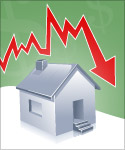 Morgan Stanley Research released its latest real estate report, Housing 2.0: The New Rental Paradigm to provide market insights to investors. It’s interesting to know that the research team observes how more Americans have become renters instead of homeowners, attributing to different factors in the economy.
Morgan Stanley Research released its latest real estate report, Housing 2.0: The New Rental Paradigm to provide market insights to investors. It’s interesting to know that the research team observes how more Americans have become renters instead of homeowners, attributing to different factors in the economy.
The report states:
Across the country, more Americans are becoming home renters, and fewer Americans are becoming homeowners. The beginning of the rentership society is upon us. But all renters are not equal – of the roughly 40MM rental housing units in the country (representing roughly $6 trillion in asset value), about half are multi-family and half are single- family.
And this is good news for real estate investors like you! With such strong demand coming from renters and bargain prices available on homes, there’s virtually no way that you could lose out on the real estate market today.
Chris Mayer, managing editor of Agora Financial, supports these findings. He states, “…rental rates have been rising. In 12 of the 27 largest metropolitan markets in the U.S., it is cheaper to buy than to rent.”
“In some markets, the gap is pretty wide (e.g. Atlanta, where monthly rental rates average $840). A mortgage payment? Principal, interest, taxes and insurance add up to a comparatively paltry $539. So there is a good opportunity there for investors,” Mayer notes.
The Morgan Stanley report concludes that if you want to defy the current market malaise, it would be more profitable to invest in single-family homes that you can use as rentals. Such homes can counter the effects of the housing bubble and further plunge in property values. More so, single-family rentals are also good for both equity and debt investors according to the report.
Although single-family homes may cost more than some other types of properties, more real estate investors prefer having greater privacy in the properties that they invest in. Single-family homes can also be expanded and many of them belong to communities with a homeowner’s association.
Best of all, single-family homes allow a real estate investor to hedge better. When it’s a buyer’s market, rents surge and one’s cash flow also increases. On the other hand, when it’s a seller’s market, the property’s value rises. This leaves the investor with the option to sell the property for a (large) profit or refinance the property to take some cash and/or get a better mortgage interest rate.
With reports like this, it’s pretty obvious that one can gain an advantage with rental real estate.




